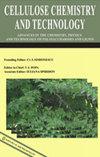可持续生态混纺纱的开发&大麻纤维在牛仔布生产中的应用
IF 1.1
4区 农林科学
Q2 MATERIALS SCIENCE, PAPER & WOOD
Cellulose Chemistry and Technology
Pub Date : 2022-11-29
DOI:10.35812/cellulosechemtechnol.2022.56.97
引用次数: 0
摘要
本研究旨在开发和表征更可持续和生态的纱线,作为使用大麻纤维生产传统牛仔布中100%棉的替代品。为此,传统的环锭纱、包芯纱和双包芯纱由有机棉/大麻纤维的三种共混比例(按百分比计为100:0、80:20和70:30)纺成。在纱线结构中,使用大麻和有机棉作为鞘纤维,使用弹性纤维类型(莱卡和T400)作为芯纤维。结果表明,护套纤维的种类和混纺比对所有纱线的物理性能都有很大影响。如预期的那样,在纱线结构中使用大麻纤维通常会降低纱线性能。然而,在纱线结构中使用大麻纤维的最佳结果是在纱线结构的护套中使用20%的大麻纤维。进一步将这一比率提高到30%会大大恶化纱线的性能,而与芯部成分无关。当对纱线的可持续性和性能进行评估时,80/20%的有机棉/大麻混纺纱线具有最佳的纱线性能。本文章由计算机程序翻译,如有差异,请以英文原文为准。
DEVELOPMENT OF SUSTAINABLE AND ECOLOGICAL HYBRID YARNS: HEMP FIBER IN DENIM FABRIC PRODUCTION
This study aims to develop and characterize more sustainable and ecological yarns as an alternative to 100% cotton in traditional denim fabric production by using hemp fiber. For this purpose, conventional ring, core-spun and dual core-spun yarns were spun from three blend proportions of organic cotton/hemp fibers as 100:0, 80:20 and 70:30 in percentages. Hemp and organic cotton were used as sheath fiber, and elastane type (Lycra and T400) – as core fiber in the yarn structures. According to the results, the sheath fiber type and blend ratio greatly influenced all yarns’ physical characteristics. Using hemp fiber in the yarn structure generally decreased the yarn properties, as expected. However, the best results by using hemp fiber in the yarn structures were achieved by using 20% hemp fiber in the sheath of the yarn structure. Further increasing this rate to 30% worsened the yarn properties considerably, regardless of the core component. When the yarns were evaluated in terms of sustainability and performance, 80/20% organic cotton/hemp blended yarns had the optimum yarn properties.
求助全文
通过发布文献求助,成功后即可免费获取论文全文。
去求助
来源期刊

Cellulose Chemistry and Technology
工程技术-材料科学:纸与木材
CiteScore
2.30
自引率
23.10%
发文量
81
审稿时长
7.3 months
期刊介绍:
Cellulose Chemistry and Technology covers the study and exploitation of the industrial applications of carbohydrate polymers in areas such as food, textiles, paper, wood, adhesives, pharmaceuticals, oil field applications and industrial chemistry.
Topics include:
• studies of structure and properties
• biological and industrial development
• analytical methods
• chemical and microbiological modifications
• interactions with other materials
 求助内容:
求助内容: 应助结果提醒方式:
应助结果提醒方式:


